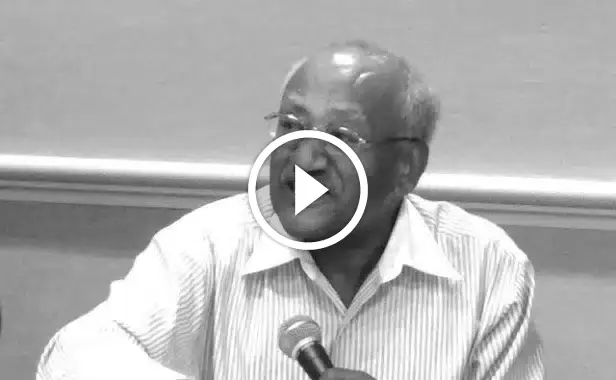Copyright zehabesha

Aklog Birara (Dr) Part II of V In Part I of this series I opined that “Ethiopia’s subjective and objective conditions show that the Oromo-elite dominated Prosperity Party (OPP) and government are incapable of responding positively” to the economic, political, and social plights of the Ethiopian people.” Part of Ethiopia’s problem is denial and the plethora of untruths conveyed by the country’s rulers. They fail to acknowledge the very institutional and structural problems they create and the harm they cause. The overarching theme that emerges from increased poverty, learning poverty, gross human rights violations, relentless drone attacks killing civilians, a weak private sector, hopelessness among Ethiopian youth, hyperinflation and the rest in Ethiopia is this. Since taking power seven years ago, Abiy Ahmed has consolidated state and government power: national security, Ethiopia’s defense forces and federal police, the ruling Oromo-elite dominated Prosperity Party, national media, budget and foreign aid, banks and financial institutions and other pillars of state power. Nothing is left to chance. Abiy Ahmed regime meets Tomothy Snyder’s definition of Tyranny. In his brilliant work on the subject, Professor Snyder urges his audience “Do Not Obey in Advance.” You will regret what you did for the rest of your life. Most people believed Abiy Ahmed’s rhetoric when he preached peace, freedom of the press, political pluralism, democracy, national identity as Ethiopians, the rule of law and more. We submitted to his untruths in advance. He used rhetoric to establish political hegemony for his tribe and party systemically. This takes me to another important lesson from Snyder “Beware the one-party state.” Abiy Ahmed offered financial and political incentives and established a strong one-party state. He did this by vanquishing his opponents. Our failure to recognize the adverse consequences of “obedience in advance” and the evolution of “the one-party state” are especially costly for the forty-three percent of Ethiopians who are poor and destitute and for the seventy-two percent who are multidimensionally poor. The one-party state is a punishing state in multiple ways. Let me elaborate on why this is so. Abiy Ahmed’s regime is committed to the resolution of domestic and foreign conflicts through the suppression of freedom and through war. It incubates and creates trouble like wars to govern with no accountability to citizens. Regardless of the sector, its priorities are different from the priorities of any good and responsible government in Africa and the rest of the world. In 2025 Abiy Ahmed’s Ethiopia ranked 132nd out of 143 countries in human rights and the rule of law, a decline from 128th in 2024. There are no checks and balances to mitigate this decline given the one-party state. Fabrication and use of untruths at epic proportions and with no red line are the norm in Ethiopia. If the regime denies statistical data presented by the World Bank and UNDP concerning the tragedy of increased poverty; there is no way it will entertain valid arguments on any subject matter from people like me. This mindset reflects ignorance, delusion, and the inability to understand what motivates people to revolt against their oppressors. My primary audience is not the regime. It is you, the reader. It is the Ethiopian people. The international community too. Presenting and assessing socioeconomic data, governance like human rights and the rule of law, political freedom, civil society participation, private sector participation, and the like matter to Ethiopian society. It matters for the region as well as the world community. In Part II, I shall focus on three governance themes. They show incredible malfeasance in governance. First: education and the future The UN informs us that “By 2050, Africa’s youth population, already the largest in the world, is projected to double to over 830 million. The OECD reports that by the same year, the continent’s working-age population (15-64 years old) will rise from 849 million in 2024 to 1.56 billion, accounting for 85% of the global workforce increase. Africa’s boundless potential offers an unparalleled opportunity for progress.” Unlocking this immense potential requires government commitment, capable leadership, a conducive environment, investments in pillars of the economy and implementation capacity and capability. Most of all, you need peace and stability. You need to invest in education so that no person is left behind. You cannot develop any country without education. Here is another sector where Ethiopia is in trouble. Experts agree Africa’s future depends on fulfilling the potential of its youth. I would add to this; it also depends on a conducive environment for domestic entrepreneurs and enterprises to thrive. Can Ethiopia’s domestic private sector thrive under the one-party state? UNESCO’s 2024 Ethiopia Country Brief “focuses thematic areas: (a) learning assessment (b) early childhood education; (c) teaching & learning (d) data challenge; (e) gender equality; and (f) equity and inclusion.” These are critical areas in human capital formation this century, UNESCO concludes elementary and secondary education in Ethiopia this way. “Ethiopia, like other African countries is facing a learning crisis. Learning poverty, the share of children not able to read and understand an age-appropriate text by age 10, is estimated by the World Bank, UNESCO, and other organizations at 90 percent. What does ninety percent mean? It means “out-of-school children are unlikely to achieve reading proficiency. But it mostly results from the fact that 89 percent of children enrolled in primary school could be learning poorly. It is imperative to improve the quality of the education provided in schools.” So, the quality of elementary education in Ethiopia is among the worst in the world. This is the essence of learning poverty. A compounding feature of this poverty is completion rate. “According to the World Bank and UNESCO Institute of Statistics (UIS data), the primary school completion rate was at 69 percent in 2021 for boys and 65 percent for girls. The lower secondary completion rate is much lower, with girls likely to trail boys although recent data on completion and enrollment rates at the secondary level are not available from UIS (the latest data are for 2015). Low educational attainment, especially for girls, is due in part tom prominent levels of child marriage and early childbearing. Gross enrollment in tertiary education was at 13 percent for men in 2018 versus 8 percent for women.” This staggering lag in education is more than concerning. In the age of AI, no country could transform its backward economy without universal access to education. This fact alone should motivate all Ethiopians who care about the future to wake up and demand change. Another shocking piece of data from UNESCO is worth your consideration. The Human Capital Index for Ethiopia based on six variables: (a) the probability that a child will survive past age five (94 percent); (b) the years of schooling that a child is expected to complete by age 18 (7.8 years); (c) the level of learning that a child is expected to acquire (348 on a scale where 625 represents advanced attainment and 300 the lowest attainment); (d) the learning-adjusted years of schooling that a child is expected to complete, a measure combining the two previous measures (4.3 years); (e) the adult survival rate (79 percent of 15-year olds surviving until age 60); and finally (f) the probability that a child will not be stunted in early childhood (63 percent)” is telling. The conclusion is scary. “A child born in Ethiopia today will reach only 38 percent of its potential. This is lower than the average for sub-Saharan Africa region.” Ethiopia has been squandering its human capital for decades. This depletion is pronounced under Abiy Ahmed and the OPP. Millions of Ethiopian children and youth deprived of universal access and quality education means Ethiopia does not benefit from its youth population. In fact, by this measurement (wealth from human capital), one can argue rightly that having a child in Ethiopia is liability rather than an asset. This is so because this capital depends on access to and attaining education at various levels—elementary, secondary, and tertiary.it depends on peace and human security. The World Bank and other development agencies estimate “human capital accounts for 69 percent of Ethiopia’s wealth.” This is huge. Part I presented a graphic picture showing poverty in Ethiopia is increasing. The regime denies the data provided by the largest multilateral agency, the World Bank, to which it owes billions of dollars. Education poverty at 90 percent worsens poverty. Put differently, millions of Ethiopians are condemned to live in abject poverty. Tragically for Ethiopia its government and the OPP do not subscribe to the centrality of human capital as a measure of the health of the economy and the wellbeing of society. This is also true for human rights and the private sector. This is why the Abiy Ahmed Ali regime continues war, buys or manufactures drones, slaughters hundreds of thousands of civilians, displaces millions of people, denies access to education for millions of children and invests heavily in glitzy projects like palaces and resorts; and supports a political party whose membership is estimated at 14 million. Given its dependency on what ordinary people produce and earn, this massive membership is a burden on the Ethiopian people. Further, a country at war with itself does not believe in nurturing and leveraging human capital. The regime treats tens of millions of Ethiopians as liabilities and as disposable. Second: Justice and the rule of law The UN informs the international community that “Social justice is the view that everyone deserves equal economic, political and social rights and opportunities.” Governments have an obligation to be guided by this world view shared widely among states. The World Justice Project, a well-known non-governmental organization, prepares The Global Rule of Law Index annually. In 2025, it evaluated and ranked 143 countries. The overall Index measures the following 8 areas of government: “1 | Constraints on Government Powers 2 | Absence of Corruption 3 | Open Government 4 | Fundamental Rights 5 | Order and Security 6 | Regulatory Enforcement 7 | Civil Justice 8 | Criminal Justice” World Justice defines The Rule-of-Law as “a durable system of laws, institutions, norms, and community commitment that delivers four universal principles: accountability, just law, open government, and accessible and impartial justice.” What is Ethiopia’s ranking in 2025? Ethiopia is among the Biggest Rule of Law Decliner countries that includes Burkina Faso, Georgia, Haiti, Hungary, Mali, Pakistan, Serbia, Slovak Republic, Türkiye. A key component of the decline is authoritarianism, tyrannical rule, and dictatorship like that of Ethiopia. Ethiopia ranks 132nd out of 143 countries surveyed. Its regional ranking is 30th out of 34 countries. This is as dismal as the situation concerning degradation of Ethiopia’s social capital and human rights. Incidentally, it is hard to separate one from the other. A closer look confirms what we often hear from social media and independent sources concerning war crimes, crimes against humanity, crimes of genocide and ethnic cleansing by the Abiy Ahmed’s military and security machine. Ethiopia under Abiy Ahmed ranks 138th in human rights violations, 137th in Regulatory Enforcement, 135t5th in Open Government, 134th in Constraints in government, 131st in human security and order, 124th in civil justice, and 96th in corruption, all out of 135 countries. There is hardly any area of the rule of law that is not degraded and dysfunctional in Ethiopia. Third: Freeing the domestic private sector In my travels to countries like Cambodia, Ecuador (latest), and Vietnam, I try to understand the productive forces behind their societies. In every case the private sector is the driver of social transformation. The government is the enabler, facilitator, and regulator. It plays the lead role in building social, economic, and physical infrastructure. It borrows on behalf of the country. It attracts foreign direct investment. frames overarching policy. It provides a regulatory framework that it must implement dutifully. This is also true for advanced market economies like the USA. No one knows the exact figure. Experts agree the private sector accounts for over ninety (90%) of jobs in developing countries. It is the biggest employer of most developed nations. Just think of the shock Americans face today because of the shutdown of the Federal Government. Millions depend on the government for contracts, for safety net and the like. But it is the private sector that is dominant in all nations, including China. In developing countries where I had the opportunity to work or visit, small and medium enterprises (SMEs) play a substantial role in producing goods and providing services. Experts estimate they account for more than fifty percent of employment. They contribute hugely to a country’s wealth and the wellbeing of its people. There is no development without private sector participation. Ethiopia’s economy has always been state-led and dominated. “Ethiopia’s private sector is less developed and more constrained by state involvement compared to the average across the rest of Africa. African countries have liberalized their economies, Ethiopia has historically followed a state-led development model, with key strategic sectors remaining under public ownership.” This state-led model supports elites and not citizens. Simply put, Ethiopia’s private sector is one of the weakest and smallest in Africa. Yet, it is smallholder farmers who supply more than 90 percent of the country’s food. It is small shops and enterprises that provide employment to millions. The country’s potential is huge; but its governance is among the poorest in the world. Ethiopia must create a conducive and favorable environment for the private sector to play its proper role. Its current ranking, 137th out of 143 countries discussed earlier, makes this untenable. Ethiopia has, over the past thirty-four years, has been robbed by state and government thieves. It lost tens of billions through corruption and illicit outflow of funds under TPLF rule. The Oromo elite dominated state and government of Abiy Ahmed adopted the same system of graft, bribery and corruption changing it to an art form. The country continues to bleed. Corruption is a form of cancer. Its cure is nothing less than the complete overhaul of the system. There is no contest. Ethiopia’s government is rent seeking. Because of this. the state and government extract rent in the form of administrative services like licensing, land allocation, administrative fees, and increased taxes of all types. How else would the government support a huge army and expenditure? How else would it finance its huge party that consists of 14 million members? Anyone who has read his books should know this. Abiy Ahmed believes in providing financial incentives to buy loyalty. In his estimation, there is no person in Ethiopia who cannot be bought with money and political status. The ruling party and government have burdened the system making it impossible for citizens to receive licenses, operate freely, move goods and services across the entire county, hire the right people and the like. You cannot do business if you must bribe a government official at any level. This is the reason the cost of doing business is higher and harder than ever before. Ethiopia’s private sector deserves change. On November 2, 2025, Ethiopia’s private sector businesspeople called on “The government to exit from business amid corruption and regulatory challenges.” Abiy Ahmed’s regulatory framework is political rather than economic and social. It penalizes businesses by demanding a plethora of mandatory written documents for purchasing goods. It imposes harsh financial payments. It makes no sense for government cadres to demand more information if the firm is legally registered to operate and operate in accordance with the regulation. The reason for undue bureaucratic interference by government officials is this: bribery and corruption at all levels. This is a major barrier to private sector participation and must cease. It must cease because It stifles employment, growth, and productivity. It makes it hard to work and live in Ethiopia. This systemic hurdle is compounded by other factors: human insecurity, lawlessness, abductions, human rights violations, ethnic cleansing, genocide, displacement, and the like. Private sector demand “for the government to exit business “is an appropriate call if anyone listens. So is the demand for peace and stability. So is the call to release political prisoners suffering in Abiy’s dungeons. So, is the need to stop killing innocent civilians under the pretext of law and order. So is state initiated and led war. In conclusion, the one-party state diminishes human potential and breeds insecurity. November 7, 2025



